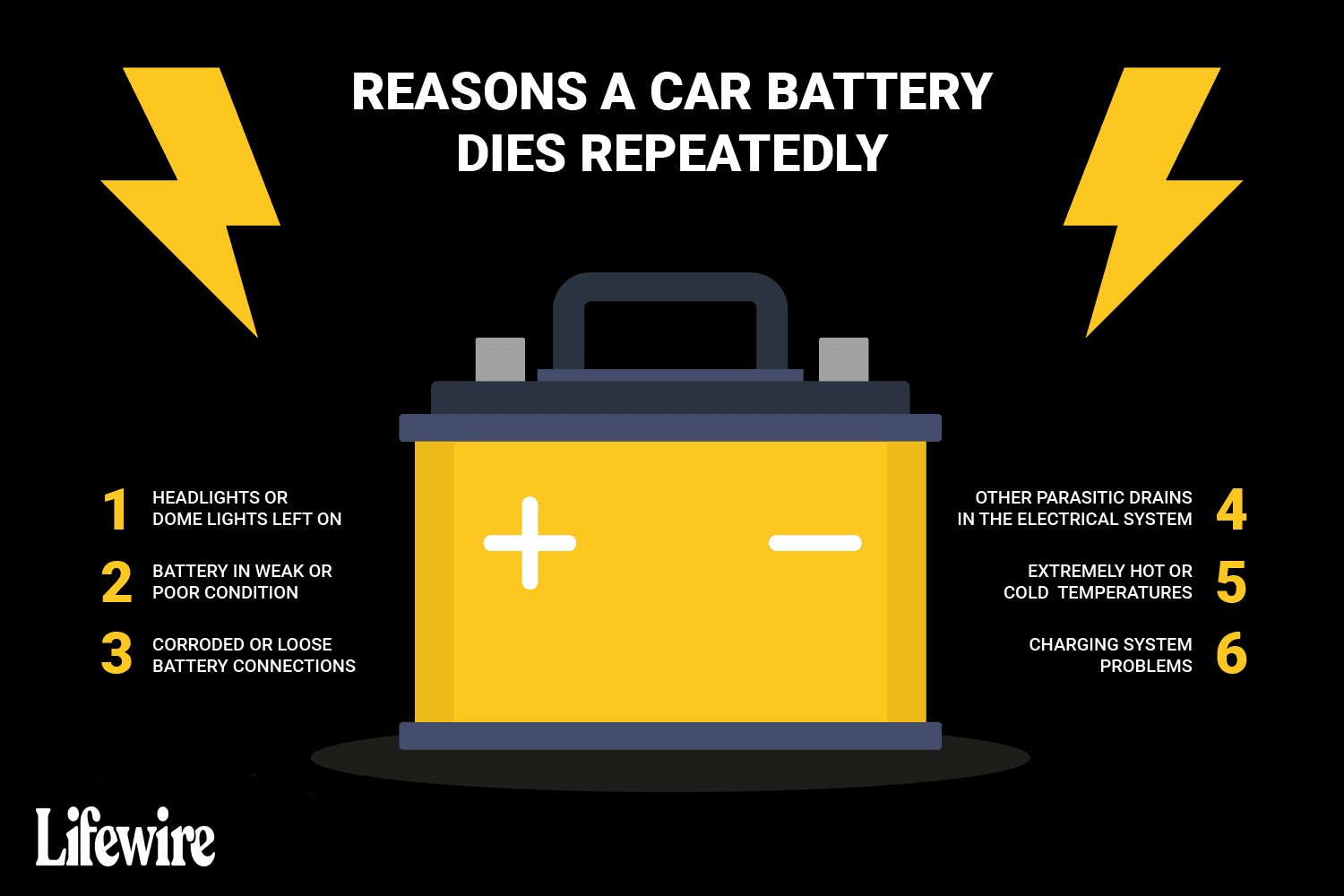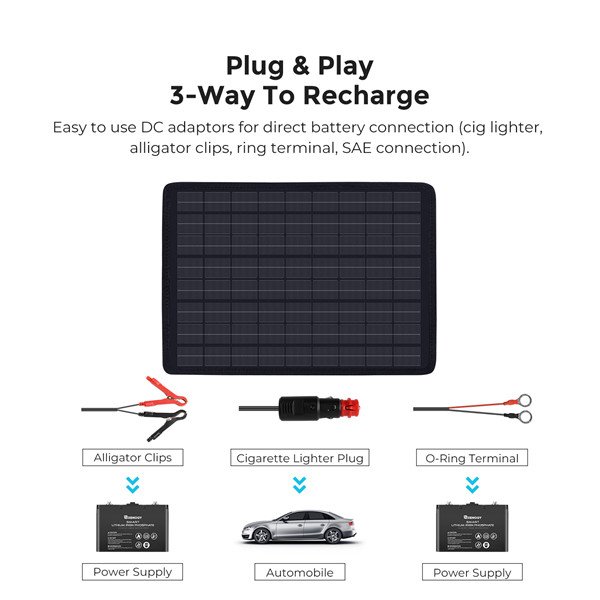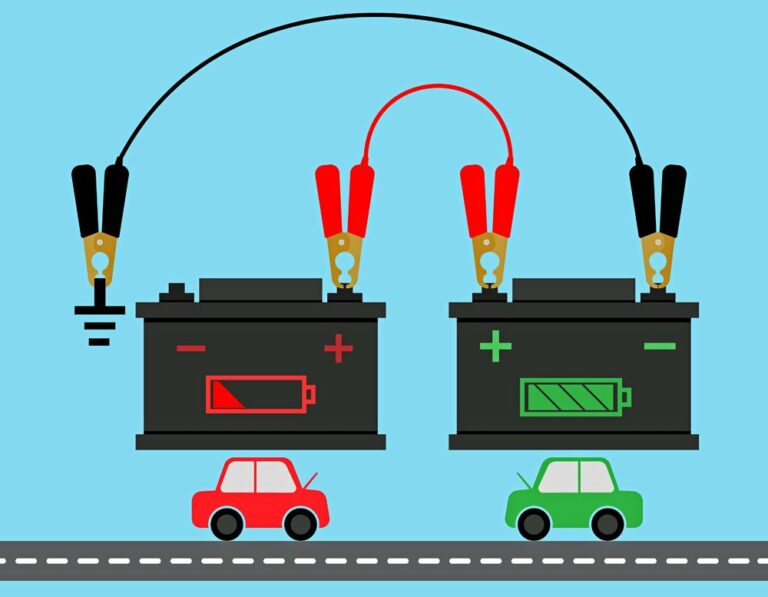Car Battery Running Out While Driving: Debunking The Myth
Is it possible for a Car Battery Running Out While Driving? This question is frequently asked by drivers. The answer is yes, a car battery can indeed stop working while you are driving. It can be quite frustrating to find yourself stranded in the middle of nowhere with a dead battery.
However, there are reasons for this happening and ways to prevent it. In this article, we will discuss the factors that may cause your car battery to drain while driving and suggest practical tips to help you avoid this situation. Let’s explore this issue further and shed some light on this common worry.
Can a Car Battery Run Out While Driving:
Driving relies on a well-functioning car battery. Can a car battery die while driving? This article delves into this question to explain the workings of car batteries and address this concern.
How Does a Car Battery Work:
Before discussing the main question, let’s learn about car battery functioning. A car battery supplies the electricity needed to start the engine, power lights, and operate electrical components by converting chemical energy into electrical energy.
Chemical Reactions in a Car Battery:
A standard car battery contains six cells connected in series, with each cell generating about 2.1 volts. These cells are composed of lead plates submerged in an electrolyte solution, typically a blend of sulfuric acid and water. When fully charged, each cell maintains a voltage of roughly 2.1 volts, totaling around 12.6 volts for the entire battery.
As the battery discharges, a chemical reaction takes place, transforming lead and lead oxide plates into lead sulfate and generating electrons. These electrons flow, creating an electrical current that supplies power to the vehicle’s electrical components.
Charging the Car Battery:
When the engine is running, the alternator generates electricity and charges the car battery. The alternator harnesses mechanical energy from the engine and converts it into electrical energy. It not only powers the car’s electrical systems but also recharges the battery.
Factors That Can Drain a Car Battery While Driving:
While it is uncommon for a car battery to run out while driving, several factors can contribute to a drained or dead battery. Let’s take a look at some of these factors:
Faulty Charging System:
If the car’s charging system, including the alternator, voltage regulator, or associated wiring, is not functioning properly, it may not provide sufficient power to recharge the battery while driving. As a result, the battery can gradually lose its charge, leading to a drained battery.
Continuous Electrical System Usage:
Running multiple electrical components simultaneously, such as headlights, air conditioning, or the stereo system, can put a significant load on the car battery. If these systems are used continuously without the engine running or with a weak battery, it may drain the battery over time.
Extended Idle Time:
Leaving the engine idling for extended periods without driving can also drain the car battery. While idling, the alternator may not generate enough power to recharge the battery fully, especially if the vehicle has idle-stop technology that shuts off the engine automatically in certain situations.
Age and Condition of the Battery
As car batteries age, their capacity to hold a charge diminishes. If you are driving with an old or weak battery, it may not have enough capacity to sustain the electrical systems, leading to a drained battery.
Parasitic Battery Drain:
Sometimes, certain electrical components or accessories in the vehicle may draw power from the battery even when the engine is off. These parasitic drains can gradually deplete the battery over time if the vehicle is not driven regularly.
Preventing a Car Battery from Running Out:
To avoid the inconvenience of a drained car battery while driving, it’s essential to take preventive measures. Here are some tips to help you prevent your car battery from running out:
Regular Battery Maintenance:
Performing regular battery maintenance, such as cleaning the terminals, checking the electrolyte levels (if applicable), and ensuring proper cable connections, can help keep your battery healthy and ensure optimal performance.
Avoid Extended Idle Time:
If you know you will be parked for an extended period, it’s better to turn off the engine instead of leaving it idling. This will prevent unnecessary battery drain and help conserve fuel as well.
Limit Electrical Usage:
To reduce the load on your car battery, avoid running multiple electrical systems simultaneously if they are not necessary. For example, turn off the air conditioning or reduce the usage of power-hungry accessories when possible.
Get Regular Vehicle Check-ups:
Regularly servicing your vehicle helps identify and resolve any issues with the charging system or other electrical components before they cause battery problems. Keeping your vehicle in good running condition can minimize the risk of a drained battery while driving.
Consider Upgrading to a High-Quality Battery:
If your car battery is aging or experiencing frequent issues, it might be worth considering upgrading to a high-quality battery with a longer lifespan. Consult with a trusted mechanic or battery specialist to determine the best battery type for your vehicle.
Car Battery DYING While Driving!
Faqs for Car Battery Running Out While Driving:
To prevent your car battery from running out while driving, you should follow a few key measures. Firstly, make sure to have regular battery inspections to ensure it is in good condition. Secondly, check the charging system, including the alternator, to ensure it is functioning properly.
Avoid leaving the headlights or other electrical components on when the engine is not running. Lastly, refrain from using too many power-consuming accessories for an extended period, as this can drain the battery. Taking these precautions can help maintain a healthy battery.
If your car battery dies while driving, you may experience various issues depending on your vehicle’s electrical system. The engine could stall, causing a sudden loss of power steering and braking assistance.
Additionally, the entire electrical system and accessories may shut down, leaving you stranded on the road. In some cases, the engine may continue to run, but you won’t be able to restart it once you turn it off. It is important to safely pull over and seek assistance if your car battery dies while driving.
Yes, a faulty car alternator can cause the battery to die while driving. The alternator is responsible for charging the battery while the engine is running. If it fails to do so, the battery will eventually run out of charge, leading to a breakdown. Some signs of a failing alternator include dim headlights, a warning light on the dashboard, or difficulty starting the car. Regular maintenance and inspections can help identify alternator issues early and prevent battery failures on the road.
The time it takes for a car battery to die while driving can vary depending on various factors. These include the battery’s capacity, the electrical load on the vehicle, and the condition of the charging system.
In some cases, a worn-out battery or a faulty alternator may cause the battery to die within a short period, such as 30 minutes to an hour. However, under normal circumstances, a healthy battery should be able to power the vehicle for several hours before running out of charge.
Final Thoughts
In conclusion, it is possible for a car battery to run out while driving. This can occur due to a variety of factors including old age, extreme weather conditions, and prolonged use of electrical components. It is important for drivers to be aware of the signs of a dying battery, such as dim headlights or difficulty starting the engine, and to take proactive measures to prevent unexpected breakdowns. Regular maintenance and keeping an eye on battery health can help ensure a smooth and uninterrupted driving experience.



